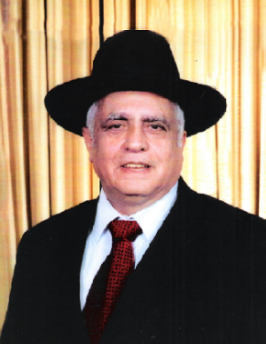
Born in 1941 in Israel, Rabbi Eliyahu Ben Haim’s journey crosses the globe, from Porat Yosef Yeshiva in Israel to becoming a respected religious leader in Iran and New York. His influence is vast, bridging tradition, migration, and dedication, and shaping Jewish life globally.
Life in Israel
Birth and family
Eliyahu Ben Haim was born in 1941 in the Holy Land. His father, Saleh Haimof, had emigrated and settled from Hamadan, Iran, at the age of eighteen. Saleh worked as an editor for an English newspaper. Eliyahu’s mother was from a Sephardic Jewish family with Spanish roots, and had been part of Jerusalem’s fabric for three generations.
Religious education
Eliyahu Ben Haim’s academic journey began early at Porat Yosef Yeshiva. By the time he was fifteen, he had already graduated, completing his primary and secondary education two years ahead of his peers. In 1958, after just eighteen months of higher learning at Yeshiva Porat Yosef—the same institution that produced prominent figures like Rabbi Ovadia Yosef, the former Sephardic Chief Rabbi—he finished his formal religious studies. Rabbi Ezra Attiya and Rabbi Yaghoub Ades, two revered figures in the spiritual community, granted him Semikhah (rabbinical certification), marking his entry into the religious leadership.
Teaching career
Rabbi Eliyahu Ben Haim, known for his analytical mind and deep understanding of Jewish law, began his career as a Shaliach, serving as a religious authority and guide. From 1967 to 1975, he presided over Yeshiva Yerushalayim Hemtivota for more than seven years, dedicating himself to the transmission of religious knowledge and values to the next generation.
Migration to Iran
Teacher at Ozar HaTorah
In 1975, Rabbi Ben Haim was dispatched to Iran by the Sochnut Institute (The Jewish Agency for Israel), where he assumed the responsibility of teaching religious studies and Hebrew at the Ozar HaTorah schools. His expertise in leading the Mussaf prayer and his profoundly resonant voice earned him widespread respect from the congregation and admiration from the Levian Synagogue’s leadership in Tehran.
Leader of the Khorasani Synagogue
The Chairman of the Khorasani Synagogue’s Board of Directors, Abdul Rahim Etesami, formally asked Rabbi Ben Haim to serve as the synagogue’s Chazan (cantor) once the construction was finished. This role would allow Rabbi Ben Haim to utilize both his religious knowledge and his remarkable vocal abilities, further enhancing the synagogue’s spiritual services and strengthening its community through his leadership in prayer.
Marriage
In 1976 (1354 AH), Rabbi Ben Haim married Edna Davoudi from Khansar. Their marriage was blessed with three sons and two daughters.
Leaving Iran
Back to Israel
Following the Islamic Revolution in Iran in 1979, Rabbi Ben Haim resigned from his official responsibilities and positions, returning to his hometown with his family. Shortly after, he dedicated himself to teaching the Holy Scriptures (Torah) and other religious studies, while also making it a priority to assist Iranian immigrants whenever the opportunity arose.
Migration to New York
After the establishment of the Khorasani Association in New York and the founding of the Shaare Tova synagogue, Abdul Rahim Etesami, Chairman of the Khorasani Association’s Board of Directors, extended an invitation to Rabbi Ben Haim to migrate to the United States and, once again, serve the Mashhadi community as a rabbi. Rabbi Eliyahu Ben Haim accepted the invitation in 1981 and migrated to the United States.
Religious leader in New York
Upon his arrival in New York, Rabbi Ben Haim assumed the role of religious leader for the Mashhadi community at the Shaare Tova Synagogue in Kew Gardens, Queens. In addition to guiding the Mashhadi community, he became the head of Beth Aaron Yeshiva, a distinguished institution for religious education in Queens. Furthermore, he holds the esteemed title of Av Beit Din, serving as the chief judge of the Sephardic religious court. In this capacity, Rabbi Ben Haim oversees a wide range of cases—financial, religious, social, and family—within Sephardic communities, with a particular emphasis on the Iranian community in the eastern United States.
It is noteworthy that many Sephardic rabbis have received their rabbinic certification (Semikhah) from Rabbi Ben Haim. He is also a respected educator at Yeshiva University in New York, one of the most renowned institutions for religious studies. For the first time in a century, a Sephardic rabbi—Rabbi Ben Haim—was appointed to head the Sephardic department at this university.


 فارسی
فارسی